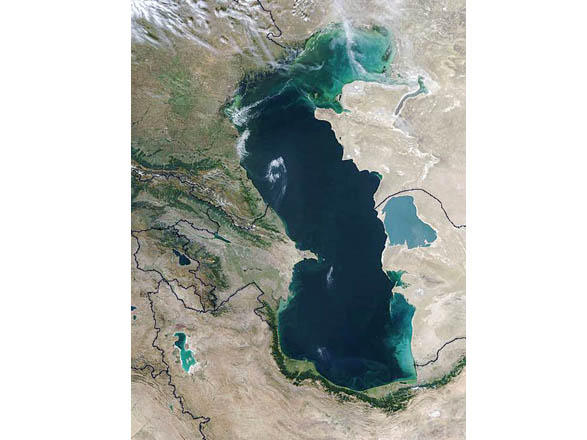Baku: Caspian Sea legal status issues mostly agreed upon

By Amina Nazarli
Azerbaijan’s Deputy Foreign Minister Khalaf Khalafov stated that issues regarding the draft convention on the legal status of the Caspian Sea have been mostly agreed upon.
Khalafov, talking to reporters in Baku on December 27, said that negotiations on the remaining issues continue.
“We expect them to be fully agreed upon until the next summit of heads of Caspian states in Astana,” Khalafov said.
The legal status of the Caspian Sea has remained unsolved during the past two decades, preventing development and exploitation of its disputable oil and gas fields and creating obstacles to the realization of major projects.
Russian Foreign Minister Sergey Lavrov earlier announced that Moscow expects that a convention on the legal status of the Caspian Sea to be signed at the fifth Caspian Summit to take place in Kazakhstan’s Astana in 2017.
Khalafov went on to say that a special group should work out these issues before the meeting of foreign ministers of the Caspian states.
“We plan to summarize all the work in order to finally agree on a draft convention on the Caspian Sea’s legal status for the heads of state to sign it,” Khalafov said.
The Caspian littoral states – Azerbaijan, Kazakhstan, Russia, Turkmenistan and Iran –signed a Framework Convention for the Protection of the Marine Environment of the Caspian Sea in November 2003.
Russia and Kazakhstan signed an agreement on the delimitation of the northern part of the Caspian Sea in order to exercise sovereign rights for subsoil use in July 1998. The two countries signed a protocol to the agreement in May 2002.
Moreover, Kazakhstan and Azerbaijan signed an agreement on the delimitation of the Caspian Sea and a protocol to it in November 2001, and February 2003, respectively.
Kazakhstan, Azerbaijan and Russia signed an agreement on the delimitation of adjacent sections of the Caspian Sea on May 14, 2003.
Russia, Kazakhstan and Azerbaijan hold to the principle of dividing into national sectors based on the “median line” principles since it is an international boundary lake, and leaving the sea surface for general use, i.e. they are for demarcation of mineral resources and the Caspian Sea shelf, but against dividing up its waters.
Iran seeks an equal division of the Caspian into 5 even sectors, mainly because most of offshore energy resources are located away from the Iranian coastline. Turkmenistan also demands division of the Sea into equal parts between the pre-Caspian countries so that each country must have 20 percent of the sea.
--
Follow us on Twitter @AzerNewsAz
